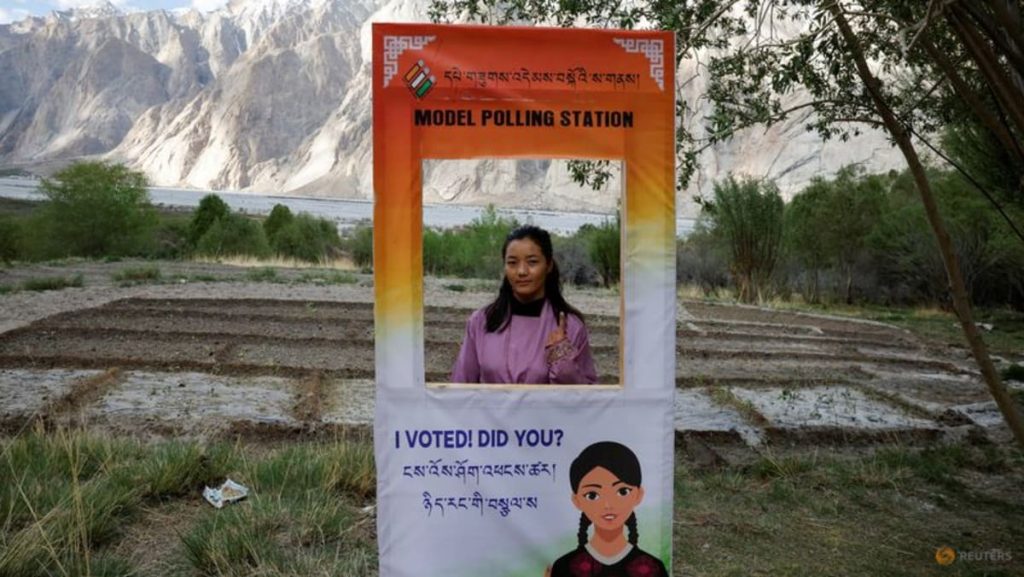The Indian Himalayan territory of Ladakh, home to a significant Muslim and Buddhist population, has been advocating for statehood and protection of their local culture within the predominantly Hindu nation of India. With almost half of the region’s population being Muslim and around 40 percent Buddhist, Ladakh stands out as one of the least Hindu places in the country. Despite their demands, the government led by Hindu nationalist Prime Minister Narendra Modi has not yet fulfilled their requests.
During the recent elections, Buddhist monks in their traditional ochre robes, as well as Muslim voters, lined up at polling stations in Leh, the main town of Ladakh. The region is known for its Buddhist monasteries, memorials to soldiers, and high militarization due to its border clashes with neighboring countries. Residents have long sought a separate legislature, protection of their culture, and measures to preserve the delicate environment of Ladakh.
After Ladakh was separated from Jammu and Kashmir and turned into a union territory in 2019, locals had high hopes for greater rights and autonomy. However, the government has yet to fulfill its promise to include Ladakh in the Sixth Schedule of India’s constitution, allowing indigenous tribal people to create their own laws and policies. All three candidates in the region are pledging to work towards this change in order to safeguard the local culture and land, which has received support from voters like Umila Bano, a 59-year-old Muslim resident.
Stanzin Norphel, a 74-year-old Buddhist retiree, expressed concerns over the lack of protection for Ladakh under the current government, stating that “This government has destroyed Ladakh.” The region’s unique cultural and environmental characteristics are at risk without constitutional safeguards and legislative autonomy. Despite the challenges, voters like Bano are hopeful that electing candidates who prioritize Ladakh’s inclusion in the Sixth Schedule will lead to positive changes for the region.
The diverse demographics of Ladakh, with its Buddhist and Muslim communities, highlight the need for greater representation and autonomy within the Indian political system. As the region continues to grapple with issues of protection and recognition of its local culture, the outcome of the recent elections will play a crucial role in shaping Ladakh’s future. Through active participation in the electoral process, residents are voicing their demands for statehood and constitutional safeguards to preserve the rich heritage and environment of Ladakh.


